Is Cutie Pie's Main Theme (Marriage Equality) Misguided?
Cutie Pie promised us a treatise on marriage equality but gave us a handbook to patriarchal paternalism instead
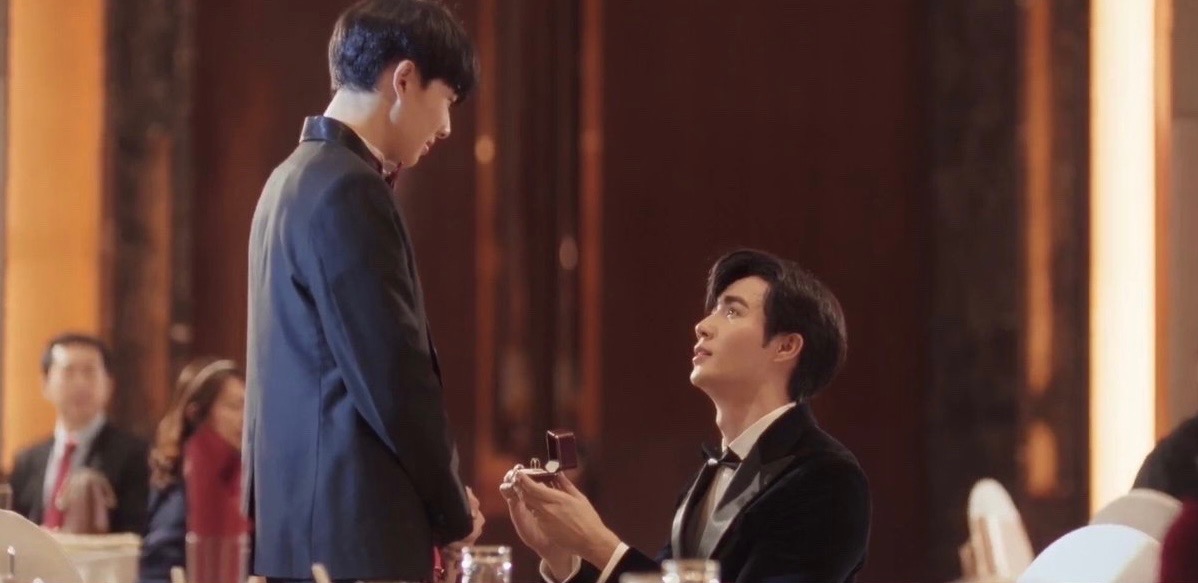
A typical romance trope retold in a BL adaptation is supposed to expose all the flaws of straight romance and show the radical potential for a more progressive, humane outcome if it were between two men. Instead of doing that Cutie Pie presented the sexist scenario but neither the story development nor the characters grow from there in 11 episodes, because they remain stuck in a culdesac of patriarchal paternalism.
From episode 1-11, Kuea and Lian’s relationship trajectory remains the same - Kuea trying to win Lian’s affection for who he is while hiding parts of his life he feels Lian might not like, and Lian trying to become what he also feels he is not - the dominant financial breadwinner on whom Kuea can depend while hiding life-changing decisions he is taking without Kia’s knowledge. With one more episode left it’s probably safe to predict that this couple will remain at series’ end tragically trapped in the traditional gender binaries they begin in: a dependent, less powerful, feminine identified man and a much more financially powerful, hyper masculine male, unequally yoked together.
Sexual consent is a radical idea. Not just because it is a concept that most are still grappling with in the absence of an instruction manual from parents or schools, but because it is a new idea in the realm of intimate relationships. It is a lens that allows us to make visible, question, and dismantle many of the oppressive structures and systems we usually take for granted. Consent is therefore central to BL romance well beyond the superficial ways it is often understood.
Women are often questioned as to their interest in creating, reading or watching romance between men-loving-men. The most obvious answer is that the gender most negatively affected by gender inequality is naturally very interested in exploring love and romance that isn’t mediated by male-female gender constraints. But that’s only part of the answer and not even the most interesting.
When it comes to sex, eliminating the heteronormative norm of penis and vagina from the equation and instead replacing them with two penises, means the negotiation of consent immediately enters the chat, whereas the boundaries and conditions of sex in heterosexual sex is usually largely presumed a priori.
When fujoshis write this trope they explicitly do not presume perfect equality because gender is no longer a factor, but deliberately infuse the mlm relationship with other power differentials like class, masculinity through the seme/uke dynamic, and even the fantastical ability of cis male pregnancy.
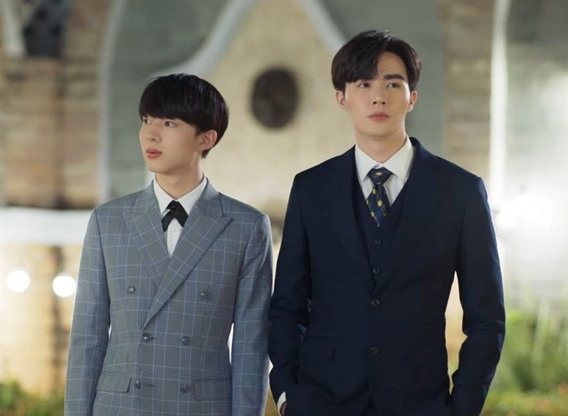
Through these residual tensions between the couples, which means consent is not black and white but inherently complicated, fujoshis have introduced a category very familiar to women, of dubious consent or dub-con for short, that makes the observer have to interrogate in context not just when “no means no” but also when yes still does not entail meaningful consent.
Similarly, the attraction of the popular arranged marriage trope in BL, is basically about how the men will negotiate the couple’s given inequalities and get to a point where the romance can be consummated in a relationship that is shaped over the course of the story by both partners meaningfully consenting to the marriage. Many writers try to write this complicated arc centred around the terms of consent to marriage; not all succeed.
Cutie Pie the Series is one of those that does not. The classic arranged marriage trope usually involves a dependent woman who is forced to marry a more powerful man. The story is told through the woman’s eyes so that her unequal position in the marriage is the central conflict which is resolved over the storyline, by the woman essentially adjusting herself to the existing power structure. She does this through gender appropriate means: personality adaptations, subterfuge, sexual acquiescence, ego management and quiet machinations - otherwise known as weapons of the weak, without the power dynamic changing. This is what Kuea has done up to the engagement proposal in episode 11.
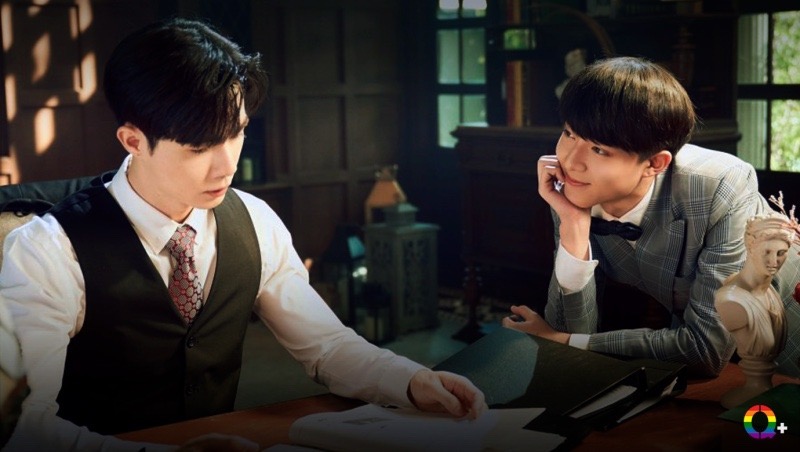
When fujoshis write the arranged marriage trope it is told from the position of the man whose happiness in the marriage most depends on the discretion exercised by the more powerful person. But from there the dependent male’s story trajectory should diverge. In the arranged marriage BL trope, the man who is more powerful at the outset is the man who will go through the most challenging process of change to adapt himself to new circumstances in which power relations are transformed and equalised between them over the course of the story. He must do most of the introspection, the crying, the caring labour, the compensatory adjustment, and the emotional work necessary to undermine the power imbalances that determine their relationship. It is never on a 50-50, false equivalency ratio from where the adjustment must come.

When the series opens we meet a polite but lively, aristocratic, Kuea who in his thoughts and spoken declarations to other characters is already in love with his fiancé Lian for as long as he can remember. Kuea’s presentation and masculinity is soft and accommodating, he is creative but not ambitious and is popular with a wide circle of friends. His priority is hiding the parts of his life from Lian that might irritate hi fiancé in order to finally win Lian’s love which he is aware he does not have.
Lian is a much older, already successful business tycoon, from humble roots, who is driven, rigid and considers himself necessarily self-sacrificing in order for the arranged marriage he agreed to with Kuea’s grandfathers - his benefactors, to take place. At the outset he point blank tells Kuea he doesn’t love him back and disparages his presentation as not human referencing two different, unattractive dolls from US culture. It is hard not to get the impression that the dehumanising doll references constitute an outright rejection of Kuea’s feminine presentation. Later we learn Lian’s equally elaborately contrived, hyper masculine presentation is part of the persona he cultivates in his choices, especially in business, in order to become the financially secure breadwinner on whom Kuea can depend in the marriage. To achieve their goals - Kuea to be loved in return by Lian and Lian to be financially worthy of being Kuea’s husband, both men keep parts of their lives and actions hidden and this ostensibly will drive the plot to conclusion.
The first time we see Lian leveraging his power position it is to be, not protective of Kuea, but to be abusive, reducing him to tears and a drinking binge. This is a pattern that repeats over each episode mapping into the classic Cycle of Abuse that many straight women face within unequal marriage. The next several episodes follow this structure - beginning from tension with Kuea trying his best to placate his abuser, peaking with Lian lashing out in anger leaving Kuea broken and in tears, followed by the honeymoon stage of Lian’s apologies and affection/sexual attention set to romantic music - repeat.
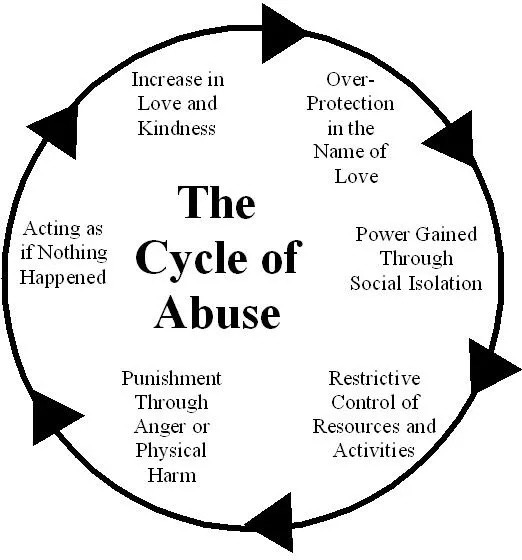
Despite this backdrop, and the fact we are at the penultimate episode and neither man has undertaken a journey to challenge the existing toxic power dynamic in which their relationship is suffering. No attempt is made to focus Kuea on his own career, whether engineering or music, as a path to give him more financial independence, be capable of contributing financially to his family or make him more of an equal to his fiancé. Similarly, with most of the narrative behind us Lian has not even begun to reasses his role in the relationship and how it needs to be radically different from their current trajectory.
Things that are normalised in society often go without names. Naming things is radical because it points out how norms, like inequality in marriage are socially constructed and maintained. Misnaming phenomena or surface level gay-washing is not queer activism. Cutie Pie promised to tell a love story of how an arranged marriage could be a transformational experience but instead celebrates the gender binary, reaffirms heterosexual gender roles and of course entrenches gender inequality.
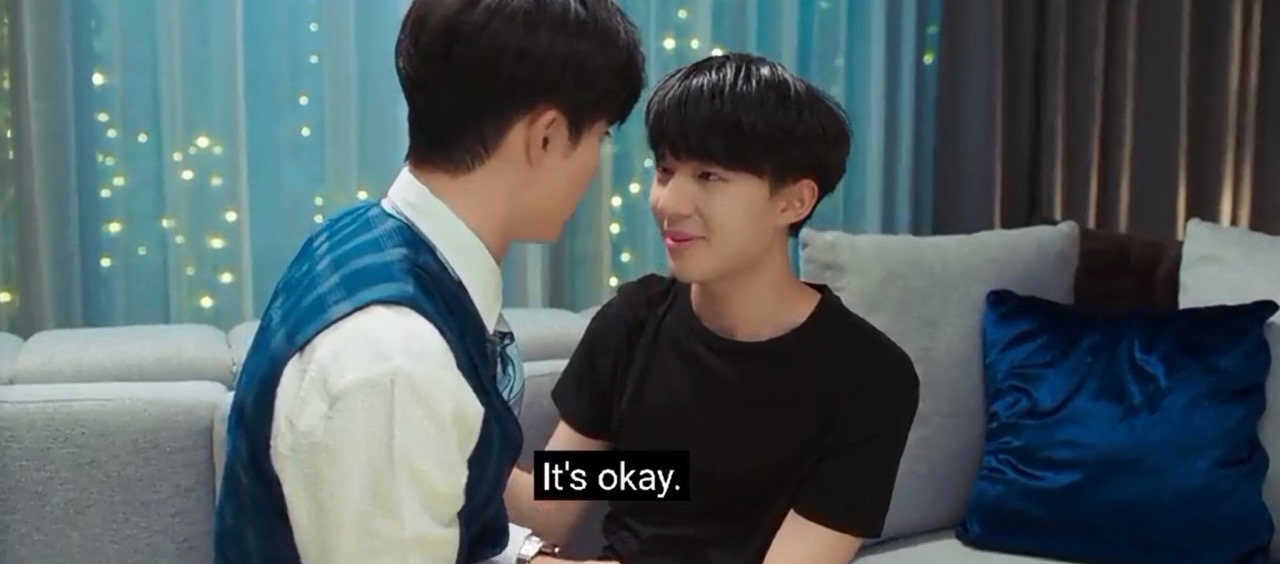
One recurring theme that is particularly worrisome, is that despite several no’s from Kuea to sexual activity, Lian’s response is to force the issue until Kuea relents and gives in, thereby assenting to sex. While both the writers and many viewers consider this to be consent this is actually dub-con because Kuea is acquiescing to sex to please his fiancé, not to fulfil his own autonomous sexual desire. Even the sex is not consensual never mind the terms of any union they might have.
Post a comment